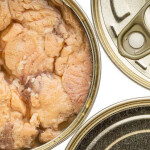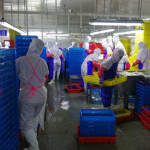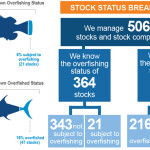Seafood Business for Ocean Stewardship (SeaBOS), a precompetitive collaboration between nine of the largest seafood companies in the world that aims to achieve sustainable transformation within the industry, released its first impact report providing a transparent review of collective action taken by its member companies.
SeaBOS members – Maruha Nichiro, Cargill, Nissui, Thai Union, Dongwon, Skretting, Cermaq, Kyokuyo, and Charoen Pokphand Foods (CP Foods) – conduct more than 19 percent of international trade in seafood products, churn out over 27 percent of aquaculture feed production, and generate USD 30 billion (EUR 28.3 billion) in annual turnover stemming from 465 subsidiaries in 65 countries.
The collaboration measures its progress in time-bound goals to address key challenges in the seafood industry, including illegal, unreported, and unregulated (IUU) fishing activities, ecosystem impacts, antibiotic resistance, climate change, and plastics, among other issues. The report shows significant progress made to address these obstacles, with all nine companies completing six of 13 previously approved joint actions.
“This report is a testament to our collective efforts and the strides we’ve made. While we celebrate our achievements, we are fully aware of the remaining challenges ahead and are resolute in our mission to create a sustainable future for our oceans,” Martin Exel, managing director of SeaBOS, said.
One of those joint actions entailed member companies conducting social assessments of suppliers with a goal of full risk assessments across their supply chains to identify and mitigate risks associated with forced labor and IUU fishing. Members have also implemented a roadmap to reduce antibiotic use in seafood operations and improve transparency and reporting.
Additionally, to address climate resilience, all members have set emissions reduction targets in line with the Science Based Targets Initiative and are starting to report on emissions. In a partnership with Ocean Conservancy, SeaBOS members are working on a global ocean cleanup campaign that has recovered 25 metric tons of ocean plastic. Seven of the nine companies have also adopted plastic-reduction strategies.
The SeaBOS model, the organization said, highlights direct CEO engagement and a science-based approach to developing goals and actions, which has helped it focus on action and impact – despite the difficulties related to working with multinational corporations.
“The seafood industry is facing challenges that one company cannot tackle alone. That is why SeaBOS is so important; it brings together like-minded businesses to achieve positive change on a global scale,” Thiraphong Chansiri, the president and CEO of Thai Union and chair of SeaBOS, said in the impact report’s introduction. “Collectively, and grounded in science, we have the strength and reach to make a difference. Thai Union’s own goals and ambitions align with those of SeaBOS, and together, we want to protect our oceans, ensure fisheries around the world are sustainable, and protect workers across the entire industry.”
Photo courtesy of SeaBOS







